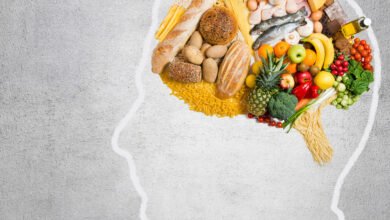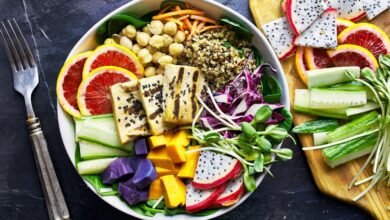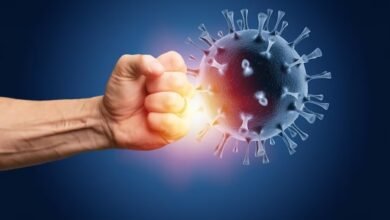The Role of a Healthy Diet in Cancer Prevention in 2023

Cancer continues to be one of the leading causes of death worldwide, but advancements in medical research have shed light on the potential role of a healthy diet in cancer prevention. In recent years, there has been a growing body of evidence suggesting that certain dietary choices can significantly reduce the risk of developing various types of cancer. By understanding the link between diet and cancer, individuals can make informed decisions about their food choices and take proactive steps toward reducing their cancer risk. This article will explore the role of a healthy diet in cancer prevention in 2023 and provide tips for incorporating cancer-fighting foods into your diet.
Read More: The Biggest Myths About Colon Cancer
Understanding Cancer
Before delving into the role of a healthy diet, it’s crucial to understand what cancer is. Cancer is a complex disease characterized by the uncontrolled growth and spread of abnormal cells in the body. These cells can form tumors and interfere with the normal functioning of organs and tissues. While there are various types of cancer, they all share the fundamental characteristic of abnormal cell growth.
Risk Factors for Cancer

Numerous factors contribute to an individual’s risk of developing cancer. While some risk factors, such as genetics and family history, are beyond our control, others are modifiable. Environmental factors, such as exposure to certain chemicals and pollutants, can increase the risk of developing cancer. Additionally, lifestyle choices, including diet, play a significant role in cancer prevention.
The Link Between Diet and Cancer
Emerging research suggests that diet can influence the development and progression of cancer. A well-balanced and nutrient-rich diet can strengthen the immune system, promote healthy cell growth, and provide protection against the harmful effects of carcinogens. Conversely, a poor diet, high in processed foods and lacking essential nutrients, can weaken the body’s defense mechanisms and increase the risk of cancer.
Key Components of a Healthy Diet for Cancer Prevention
A healthy diet for cancer prevention should include a variety of foods that provide essential nutrients while minimizing the intake of harmful substances. Fruits and vegetables, rich in vitamins, minerals, and antioxidants, are essential components of an anti-cancer diet. Whole grains provide fiber and other important nutrients, while lean proteins support cell repair and growth. Healthy fats, such as those found in nuts and avocados, can help reduce inflammation and protect against cancer.
Specific Foods with Cancer-Fighting Properties
Certain foods have been shown to possess cancer-fighting properties. Cruciferous vegetables, including broccoli, cauliflower, and kale, contain compounds that have been linked to a reduced risk of cancer. Berries, like blueberries and strawberries, are rich in antioxidants and can help combat oxidative stress. Turmeric, a vibrant yellow spice commonly used in Indian cuisine, contains a compound called curcumin, which has shown promise in inhibiting the growth of cancer cells. Green tea, a popular beverage known for its antioxidant properties, has been associated with a lower risk of several types of cancer. Garlic, known for its distinct flavor, contains sulfur compounds that may have anti-cancer effects.
The Importance of Antioxidants

Antioxidants are substances that help protect the body from damage caused by free radicals, which are unstable molecules that can harm cells and DNA. They play a crucial role in maintaining cellular health and reducing the risk of chronic diseases, including cancer. Consuming a diet rich in antioxidants can help neutralize free radicals and reduce oxidative stress in the body.
Reducing the Risk of Specific Cancers through Diet
While a healthy diet is beneficial for overall cancer prevention, certain foods, and dietary patterns have been specifically associated with reducing the risk of particular types of cancer.
For example, studies have suggested that a diet rich in fruits and vegetables may lower the risk of breast cancer. Cruciferous vegetables like broccoli and cabbage, in particular, have been linked to a reduced risk of developing colorectal cancer. Some evidence suggests that consuming foods rich in lycopene, such as tomatoes, may help lower the risk of prostate cancer.
Lifestyle Changes to Complement a Healthy Diet
In addition to maintaining a healthy diet, lifestyle habits can further support cancer prevention. Regular physical activity can help reduce the risk of various cancers by promoting healthy weight management, enhancing immune function, and improving overall well-being. Maintaining a healthy weight is also crucial, as obesity has been linked to an increased risk of several types of cancer. Furthermore, avoiding tobacco products and limiting alcohol consumption can significantly lower the risk of developing certain cancers.
Conclusion
In 2023, the significance of a healthy diet in cancer prevention cannot be overstated. By understanding the link between diet and cancer, individuals can make informed choices that can potentially reduce their risk of developing this devastating disease. A well-balanced diet, rich in fruits, vegetables, whole grains, lean proteins, and healthy fats, can provide essential nutrients, antioxidants, and protective compounds that support the body’s defense against cancer. Combined with lifestyle changes like regular physical activity, maintaining a healthy weight, and avoiding tobacco and excessive alcohol consumption, a healthy diet can play a vital role in promoting overall health and reducing the risk of cancer.
Read More: Smoking and Cancer: Risks and Effects in 2023
FAQs
Is there a specific diet that guarantees protection against cancer?
No single diet can guarantee protection against cancer. Still, a well-balanced diet that includes a variety of fruits, vegetables, whole grains, lean proteins, and healthy fats can contribute to reducing the risk.
Are there any foods that should be avoided to prevent cancer?
While no specific foods can guarantee the prevention of cancer, it’s generally advisable to limit the consumption of processed foods, sugary beverages, and foods high in saturated and trans fats.
Can supplements replace a healthy diet for cancer prevention?
Supplements should not replace a healthy diet. It’s best to obtain nutrients from whole foods whenever possible. Consult with a healthcare professional before considering any supplements.
Can exercise alone prevent cancer?
Regular physical activity is important for overall health and can reduce the risk of cancer. However, it should be combined with a healthy diet and other lifestyle modifications for maximum benefit.
How often should cancer screenings be done?
The frequency of cancer screenings depends on various factors, including age, gender, family history, and personal risk factors. It’s best to consult with a healthcare professional to determine







